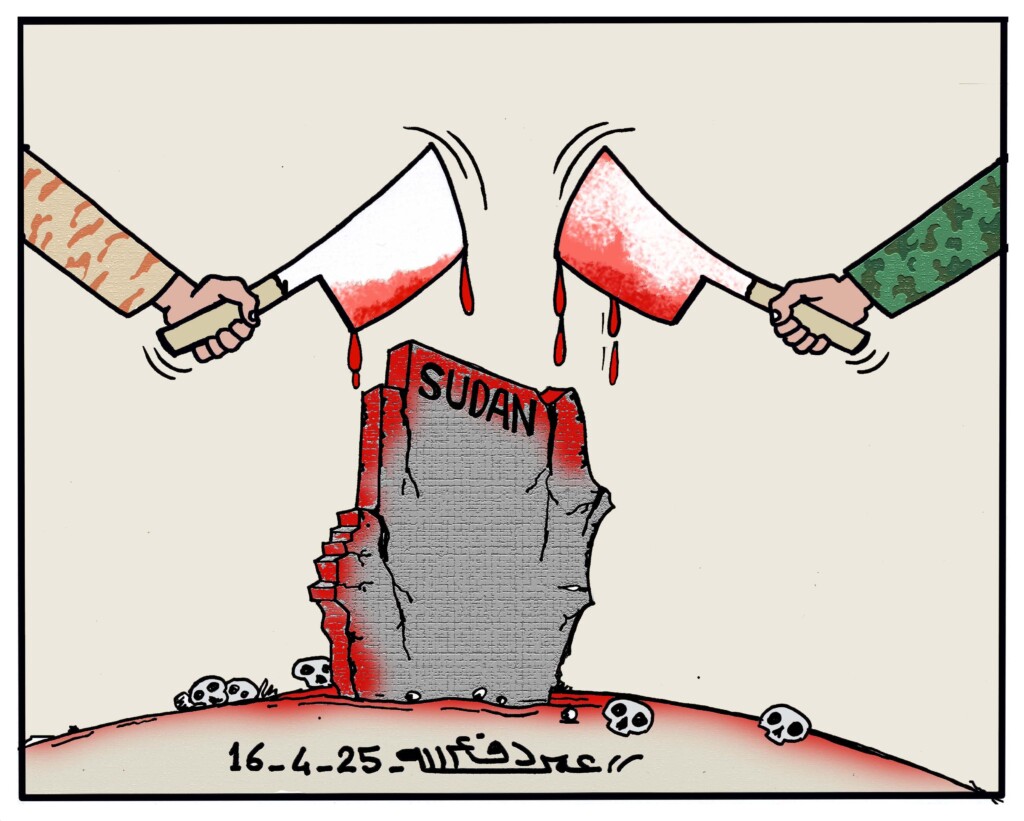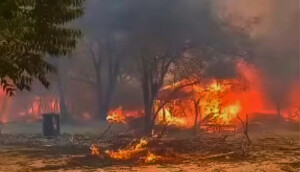UNSC closed session highlights escalating Sudan crisis

Cartoon: Omar Defallah / RD)
The UN Security Council met in closed consultations yesterday, to review the worsening humanitarian and political situation in Sudan. The meeting, requested by Denmark and the United Kingdom, focused on recent violence in North Darfur and the Kordofan region.
Secretary-General’s Personal Envoy for Sudan Ramtane Lamamra and UN High Commissioner for Human Rights Volker Türk provided updates in the closed session. Lamamra outlined the severe security challenges as fighting between the Sudanese Armed Forces (SAF) and the paramilitary Rapid Support Forces (RSF) intensified.
Both sides have deployed drones, artillery, and airstrikes, worsening civilian suffering and raising grave concerns over violations of international humanitarian and human rights law.
Russia objected to a briefing from the Office of the High Commissioner for Human Rights, questioning its mandate to address the conflict, ahead of the closed session.
Denmark and the UK countered Russia’s objection, emphasising the Office of the United Nations High Commissioner for Human Right’s (OHCHR) strong presence in Port Sudan and its nationwide access, underscoring the need for the Council to draw on all relevant information.
The OHCHR has verified the killing of at least 60 civilians by RSF forces in Bara, North Kordofan, since 10 July, though some metrics put the death toll at 200 or more. SAF airstrikes have also resulted in numerous civilian deaths and injuries.
In mid-July, SAF airstrikes hit shelters in Abu Zabad, killing eight people, including children. Rockets also struck Osama bin Zaid and El Wefaq schools, both of which served as shelters. Local emergency committees have condemned the repeated targeting of civilians and shelter sites as war crimes.
The Council also discussed political developments. Sudan’s Prime Minister, Dr Kamil El Tayeb Idris, appointed by Lt Gen Abdelfattah El Burhan, head of the Sovereignty Council and commander-in-chief of the SAF, is continuing to form a 22-member technocratic government.
They also discussed the parallel government announced in Nyala, South Darfur, by the RSF-led Sudan Founding Alliance (Tasees). The alliance, which includes the paramilitary Rapid Support Forces and the Sudan People’s Liberation Movement-North (SPLM-N) led by Abdelaziz El Hilu, named RSF Commander Mohamed ‘Hemedti’ Dagalo as president of a 15-member Presidential Council. El Hilu assumed the role of vice president, while former Sovereign Council member Mohamed Hassan El Tawashi was appointed prime minister. The alliance also named eight regional governors across Sudan.
Regional actors, including the African Union, have condemned this parallel authority, reaffirming support for Sudan’s Transitional Sovereignty Council and civilian government and warning against further political fragmentation.
The Security Council, led by the A3 Plus group including Algeria, Sierra Leone, Mozambique, and Guyana, together with the United Kingdom, is working on a draft statement responding to the announcement of the parallel government and reaffirming Sudan’s territorial integrity.
Lamamra previously called for unified international action to resolve the crisis. According to the Security Council report, coordination efforts between the United Nations, African Union, and League of Arab States continues as they push forward with peace efforts.











 and then
and then